Keynote and invited speakers
Keynote Speaker
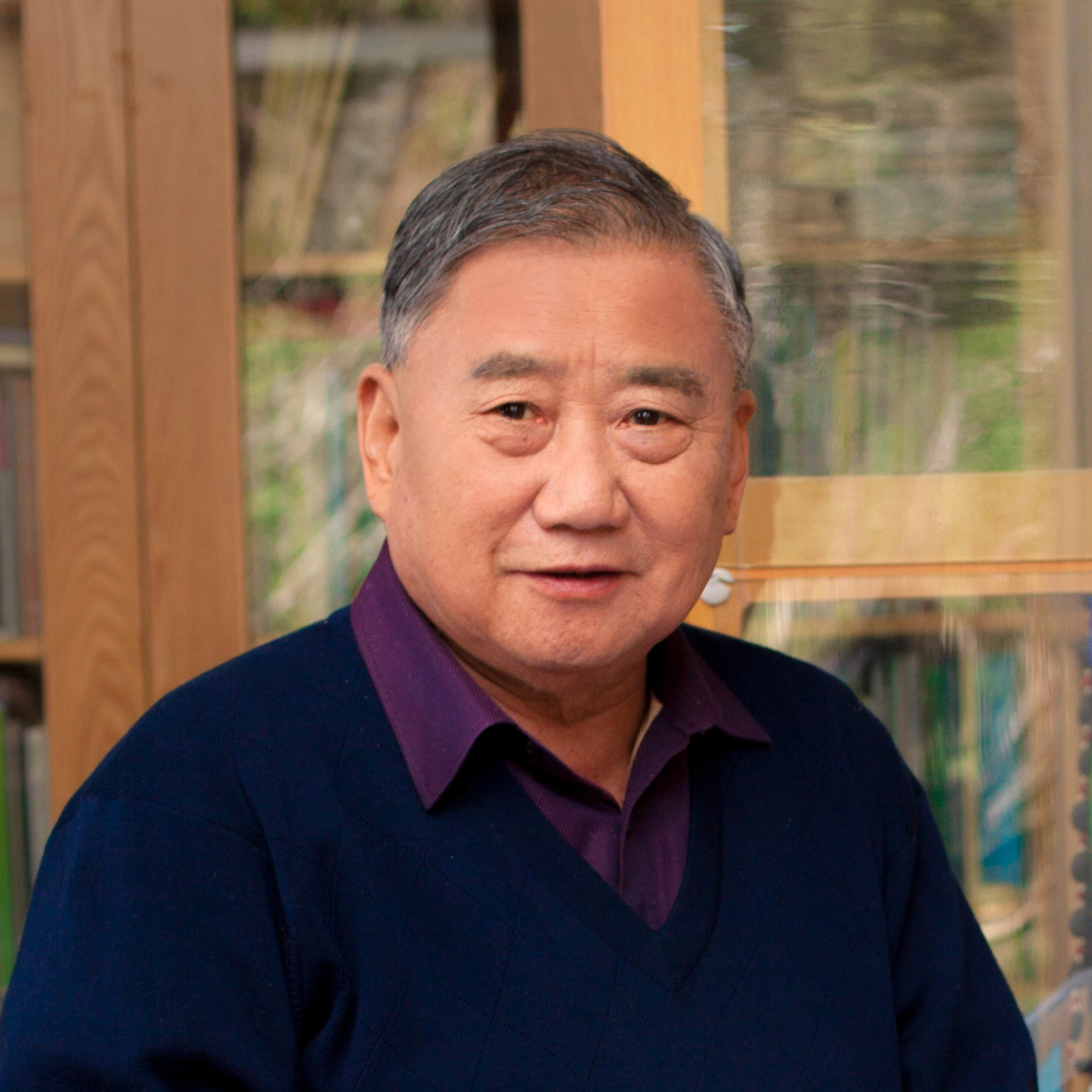 |
Prof. Dr.Pei Shengji"Vital Role of Ethnobiology in New Era of Biodiversity Conservation of China"Professor, Honorary President of Chinese Association of Ethonobotany, Kunming Institute of Botany (KIB), Chinese Academy of Sciences (CAS), Heilongtan, Kunming 650201, ChinaPei Shengji is a research professor at Kunming Institute of Botany, Chinese Academy of Sciences, founder of Chinese ethnobotany, fellow of Linnean Society, member of IUCN-WCPA-CSVPA; ex-President of International Society of Ethnobiology (ISE, 1998-2002); Division chief of Mountain Natural Resource, International Center for Integrated Mountain Development(1990-1998); Director of Xishuangbanna Tropical Botanical Garden, Chinese Academy of Sciences (1978-1986); After retirement in 2003, he is still active in BioCultural Diversity research and traditional botanical knowledge studies and biocultural diversity conservation in China and Southeast Asia. |
Invited speakers
 |
Prof. Dr.Jorge M. Canhoto"Somatic embryogenesis and other in vitro techniques towards tamarillo breeding and conservation"Jorge M. Canhoto is graduated in Biology by the University of Coimbra, Portugal and completed his PhD in 1995, in the field of Plant Physiology. In 2004 he get a full position (Botany-Plant Biotechnology) as professor at the Department of Life Sciences of the University of Coimbra where he's now Associate Professor. He is now director of the Master in Plant Biodiversity and Plant Biotechnology of the Department of Life Sciences of the University of Coimbra and leads the Plant Biotechnology Group of the Centre for Functional Ecology. At the University of Coimbra he is responsible for the courses of Plant Biotechnology, Plant Development, Forest Biodiversity and Biotechnology and Experimental Biology. Nowadays he’s editor of the Springer journals In Vitro Cell & Dev Biology and Forestry Research, Frontiers in Plant Science, Plants and Forests. and chair of the Division of Plant Biotechnology and Genetic Resources of the ISHS. Is the Portuguese representative of the Centre for Information in Biotechnology, a member of CropLive Europe (https://croplifeeurope.eu/). More recently he is collaborating with the FAO in publications related with the area of Plant Genetic Resources. He has published more than 100 papers and book chapters, supervised several master and PhD’ thesis and organised various international meetings. |
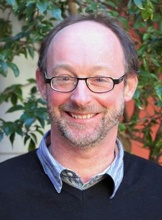 |
Dr. Ir. Bart Panis"Cryopreservation to preserve vital tropical crops for future generations"Senior Scientist │ Genetic Resources Representative of the Alliance of Bioversity International and CIAT in Belgium
Bart Panis obtained his PhD in 1995 at the University Leuven, Belgium, where he was involved in cryopreservation and the development of embryogenic cell suspensions, protoplast culture and techniques for genetic engineering of banana. As postdoctoral researcher and lateron as research manager, he co-ordinated different international projects dealing with plant biotechnology and cryopreservation. In 2013, he started working for Bioversity International and developed the world’s largest banana cryobank. A major achievement is the development of a novel plant cryopreservation protocol (i.e. droplet-vitrification), that was lateron applied to meristems, calli, somatic and zygotic embryos of more than 50 plant species. Bart Panis is currently member of the editorial board of CryoLetters and Associate Editor of Plant Cell Tissue and Organ Culture and was involved in the organization of about 50 international Symposia and workshops. He trained more than 100 researchers from all parts of the world on plant cryopreservation and developed protocols for about 50 plant species. He is council member for Belgium of the ISHS (International Society for Horticultural Science). His research was written down in more than 400 contributions, resulting in an h-index of 31. |
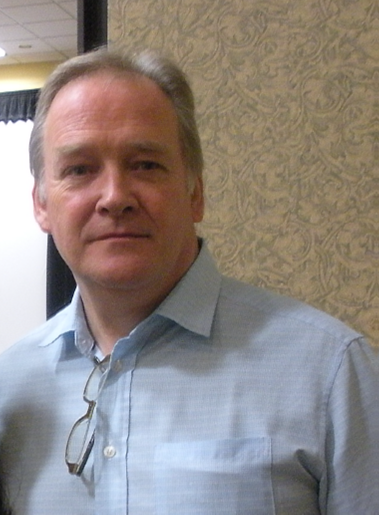 |
Professor Dr. Hugh Pritchard"Seed 'omics' and the Conservation of Plant Biodiversity"Head of Comparative Seed Biology, Royal Botanic Gardens (RBG) Kew, United KingdomHugh Pritchard has a PhD in plant cryobiology and >30 years' experience in genetic resources preservation, including as a member of the senior management team delivering the Millennium Seed Bank Project / Partnership through to 2014. His research specialities include seed storage, germination modelling and stress biology in native species, including many of horticultural interest. He has published >200 scientific papers (c. 58% in international peer-reviewed journals), including in PNAS, The Plant Journal, Biotechnology Advances and TIPS. His Google Scholar h-index and ResearchGate score are both > 40. His research work is multidisciplinary in approach and his research group (5 post-doctoral fellows, and numerous visiting scientists / students) has global connections, publishing with co-authors from >30 countries (from Brazil to China) in the last 10 years. He has led four Darwin Initiative (UK) projects (2003-17) involving 16 countries in Africa, 9 countries in the Americas and 6 countries in Asia. He has managed Kew's role on two EU Framework 7 projects on 'climate and seed quality' and 'native seed biology' and a NERC project on seeds of Amazonian plants. In addition to being Executive Editor of the low temperature science journal CryoLetters, he has been chairman of the Society for Low Temperature Biology (2008-11), a governor at Writtle University College, UK (2008-12) and a long-standing member of committees of the International Seed Testing Association. He holds honorary professorships from the University of Sussex and the Chinese Academy of Sciences, is a fellow of the Royal Society of Biology and the Linnean Society; and is an elected member of the Academy of Sciences of South Africa. He was a Senior International Visiting Professor with the Chinese Academy of Sciences in 2011 and 2017. He leads for Kew on the collaboration with the Indian Council of Agricultural Research and the Chinese Academy of Sciences. Examples of recent publications on horticulture, landscape and conservationBastos LLS, Ferraz IDK, Lima Junior MJV, Pritchard HW (2017). Variation in limits to germination temperature and rates across the seed-seedling transition in the palm Oenocarpus bataua from the Brazilian Amazon. Seed Science & Technology 45 (1), 1-13. https://doi.org/10.15258/sst.2017.45.1.05 Ladouceur E, Jiménez‐Alfaro B, Marin M, De Vitis M, Abbandonato H, Iannetta PPM, Bonomi C, Pritchard HW (2018). Conservation Letters 11 (2), e12381. https://doi.org/10.1111/conl.12381 Marks TR, Seaton PT, Pritchard HW (2014). Desiccation tolerance, longevity and seed-siring ability of entomophilous pollen from UK native orchid species. Annals of Botany 114, 561–569. [http://doi:10.1093/aob/mcu139]http://doi:10.1093/aob/mcu139 Nadarajan J, Benson EE, Xaba P, Harding K, Lindstrom A, Donaldson J, Seal CE, Kamoga D, Agoo EMG, Li N, King E, Pritchard HW (2018). Comparative biology of cycad pollen, seed and tissue – a plant conservation perspective. The Botanical Review 84 (3), 295–314. https://doi.org/10.1007/s12229-018-9203-z Popova E, Sylvestre I, Kim H-H, Kumar Saxena P, Engelmann F, Pritchard HW (2016). Frozen beauty: the cryobiotechnology of orchid diversity. Biotechnology Advances 34, 380-403. https://doi.org/10.1016/j.biotechadv.2016.01.001 Prasongsom S, Thammasiri K, Pritchard HW (2017). Seed micromorphology and ex vitro germination of Dendrobium orchids. ISHS Acta Horticulturae 1167: Ist International Symposium on Tropical and Subtropical Ornamentals. https://doi.10.17660/ActaHortic.2017.1167.48 Seaton PT, Hosomi ST, Custódio CC, Marks TR, Machado-Neto NB, Pritchard HW (2018). Orchid seed and pollen: a toolkit for long-term storage, viability assessment and conservation. Pp 71-98 in Lee YI., Yeung ET (eds) Orchid Propagation: From Laboratories to Greenhouses—Methods and Protocols. Springer Protocols Handbooks. Humana Press, New York, NY. https://doi.org/10.1007/978-1-4939-7771-0_4 Wade EM, Nadarajan J, Yang X-Y, Ballesteros D, Sun W-B, Pritchard HW (2016). Plant species with extremely small populations (PSESP) in China: a seed and spore biology perspective. Plant Diversity 38, 209–220. http://dx.doi.org/10.1016/j.pld.2016.09.002 |
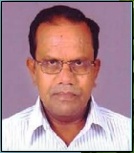 |
Prof. Dr.Shaik Mahammad Khasim"In vitro multiplication of some selected banana cultivars (Musa spp.) from India and their genetic fidelity using ISSR markers"Department of Botany and Microbiology, Acharya Nagarjuna University, Nagarjunanagar, Guntur 522 510, Andhra Pradesh, IndiaProfessor Shaik Mahammad Khasim has graduated from Andhra university, Visakhapatnam, India and holds a Post- graduate degree from Sardar Patel University, Vallabh Vidyanagar, Gujarat. He obtained his Ph.D. in 1987 from Nagarjuna University and did his research in Botany specializing in Orchid taxonomy, anatomy and ecology. He made significant contribution in Orchid Biology, especially molecular characterization, biodiversity, ethnomedicine, phytochemistry of Indian orchids. Besides, he is also interested in Ethnobotany and screening of bioactive compounds from medicinal plants of Eastern and Western Ghats of India. Prof. Khasim visited the University of British Columbia Botanic Garden, Vancouver, Canada (2008), Botanic Gardens of National Museum of Natural Science, Taichung, Taiwan (2010) and Singapore Botanic Garden (2011). He has published 90 research papers in National and International journals. He is the author of the book titled “Botanical Microtechnique: Principles and Practice” which has received wide appreciation and co-author of “Flora of Guntur City, Andhra Pradesh, India”. He is also one of the editors of two books on Medicinal Plants as well as on Orchid Biology published by Springer. As a Convener, Prof. Khasim organized the International Symposium on ‘Biodiversity of Medicinal Plants & Orchids: Recent Trends and Challenges’ in 2018, at Guntur, India. He presented his scholarly papers in the 20th World Orchid Conference held at Singapore (2011); also in First and Second International Orchid Symposia held at Taichung (2010) and Bangkok (2014) respectively. He also attended First International Symposium on Tropical and Subtropical Ornamentals at Krabi (Thailand); and 3rd International Symposium on Cryopreservation at Bangkok (2018). Prof. Khasim has been actively associated with TOSI , Chandigarh (India) since its inception in 1984. He is a founder member/life member of TOSI, and Indian Science Congress Association, Calcutta, and member of the International Society for Horticultural Science (Belgium). |
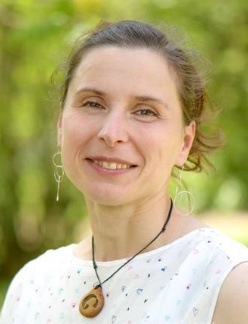 |
Dr.Manuela NagelHead of ‘Cryo and Stress Biology’, IPK Gatersleben, Germany
Manuela Nagel studied agricultural sciences at the University of Gottingen, Germany. During her PhD, she discovered her passion for seed science and long-term survival of plant genetic resources. At IPK Gatersleben (Germany) and the Millennium Seedbank of KEW Gardens (UK), she studied seed survival and combined her knowledge of quantitative genetics with biochemical perspectives. Since 2016, as head of the cryo- and stress biology group at IPK Gatersleben, she has managed the in-vitro storage and cryobank, which preserves around 2,200 genotypes of potato, garlic, mint and yam. Further, her research projects involve long-term storage of plant genetic resources, survival strategies of meristematic tissues, seeds, pollen in extreme environments, plant stress physiology (free radicals, antioxidants, redox signalling), biochemical markers of cell viability and molecular approaches to elucidate the genetic background of high viability and genetic variation. In 2019, she did her post-doctoral degree (Habilitation) at the university of Hohenheim and advices master and PhD students at IPK Gatersleben. |
Dr.Gayle Volk"Plant Cryopreservation: Research, Implementation, and Outreach"USDA-ARS National Laboratory for Genetic Resources Preservation
|
|
